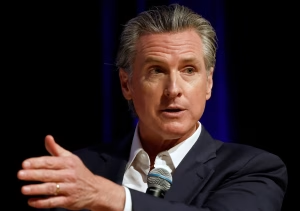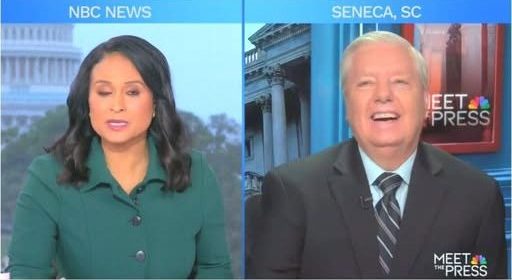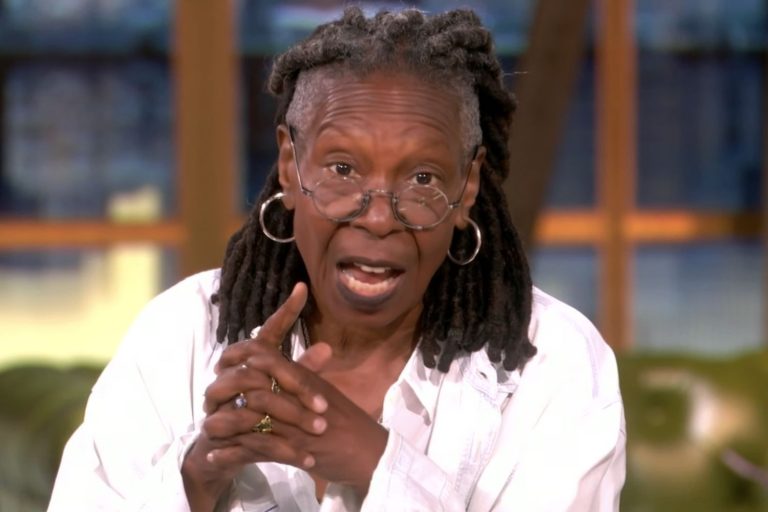Things got heated 😳. Not saying what just yet — but let’s just say Senator Lindsey Graham had another moment that’s making headlines.
It’s been years since the explosive Brett Kavanaugh confirmation hearings, yet few who watched those proceedings will ever forget what unfolded. The contentious battle over Kavanaugh’s nomination revealed the depths of partisan politics in Washington — and, for many conservatives, marked the moment Senator Lindsey Graham (R-SC) transformed into what supporters dubbed “Lindsey Graham 2.0.”
That version of Graham — fiery, unapologetic, and fiercely combative — was born out of sheer frustration with what he called the Democrats’ “circus of hypocrisy.” When he slammed his Democratic colleagues during that hearing, it became one of the defining moments of his career, a rallying cry for conservatives disillusioned with what they saw as political persecution masquerading as justice.
Fast-forward to 2025, and it seems that version of Graham is back. On Sunday’s Meet the Press, hosted by NBC’s Kristen Welker, “Lindsey 2.0” resurfaced in full force — sharper than ever and ready to push back against what he described as the media’s one-sided narrative surrounding the Biden administration’s Justice Department and its treatment of Republicans.
The Exchange That Caught Everyone’s Attention
The interview began calmly enough, with Welker pressing Graham about the ongoing investigations into figures like Letitia James, the New York Attorney General, and questions about political interference in the Justice Department. But things quickly escalated as Graham drew comparisons between how Democrats and Republicans have been treated under President Joe Biden’s administration.
Here’s part of the exchange that aired:
Kristen Welker: “Do you think that crosses a line between the Justice Department being independent from the executive branch?”
Senator Graham: “I think our Justice Department, in the hands of President Biden, crossed every line there is to cross. Within days of him announcing his re-election campaign, it was clear what the agenda would be.”
Welker (interrupting): “But what about Trump? What about Trump?”
Graham: “He had 91 indictments…”
Welker (talking over him): “But what about Trump?”
Graham: “The grand jury’s going to take care of that. But you didn’t care when Letitia James brought charges no one’s ever faced before.”
Welker: “But Senator, President Biden never called for Trump to be indicted.”
Graham: “Biden regretted they didn’t do it before the election. Jack Smith surveilled my phone records and those of eight other Senators. He introduced his brief against Trump just before the 2024 election — violating every protocol, just to politicize it. Maybe that doesn’t bother you. It doesn’t bother me one d**n bit.”
The clip quickly circulated online, with conservatives celebrating Graham’s firm pushback and many on the left accusing him of dodging accountability questions about former President Trump. But regardless of political leanings, the exchange revealed something undeniable — Graham has reclaimed his no-nonsense posture.
https://twitter.com/RNCResearch/status/1977398129390407741
Lindsey Graham 2.0 — Revisited
What stood out wasn’t necessarily anger or theatrics this time. Unlike his furious 2018 tirade during the Kavanaugh hearing, this version of Graham was controlled, deliberate, and unyielding. He didn’t shout; he didn’t grandstand. Instead, he calmly dismantled the premises of Welker’s questions — refusing to let the conversation spiral into the predictable “what about Trump?” loop that mainstream media anchors often deploy.
For many viewers, it was a refreshing reminder of how conservatives can engage with legacy media without conceding the framing of every issue. As one commentator noted on X (formerly Twitter):
“This is how Republicans should handle the press — don’t take the bait, don’t accept their narrative, and don’t let them define the terms of the debate.”
Indeed, throughout the segment, Graham remained focused on his central argument: that the Biden administration’s Justice Department has acted with political motives while the media largely ignores those concerns.
The Media’s Familiar Tactic
The pattern was familiar to many conservatives watching at home. When pressed on issues that reflect poorly on Democrats or federal agencies, media figures often pivot back to former President Donald Trump — a strategy critics say is designed to deflect scrutiny from the left’s own controversies.
That moment was on full display as Welker repeatedly interrupted Graham to ask variations of the same question: “But what about Trump?”
Graham’s refusal to play along — and his calm but pointed rebuttals — stood in stark contrast to the flustered tone of the exchange. He reminded viewers that accountability and consistency are nonpartisan principles, even if the press sometimes treats them as otherwise.
“The corporate press loves to pretend it’s being fair,” one conservative strategist told The Daily Wire after the interview. “But when the facts turn against their side, they change the subject. Lindsey didn’t let that happen this time.”
Why This Moment Resonates
To understand why this interview struck a chord, it helps to revisit why “Lindsey Graham 2.0” became such a symbol in the first place. During the Kavanaugh hearings, Graham’s explosive defense of the Supreme Court nominee captured conservative frustration with what they saw as Democratic smear tactics and media complicity.
Since then, Graham has oscillated between conciliatory bipartisanship and fiery partisanship, earning both praise and criticism within his own party. But this latest exchange suggests that his willingness to confront media narratives head-on remains intact — and perhaps stronger than ever.
His message on Meet the Press wasn’t just about Trump, Biden, or the Justice Department. It was about the larger issue of media accountability — a topic that continues to divide the political landscape. For conservatives, it was validation that someone in Washington is still willing to challenge what they perceive as institutional bias.
The Broader Context
The conversation also comes at a tense time in American politics. The Biden administration continues to face questions about the politicization of the Department of Justice, while former President Trump remains embroiled in multiple legal battles. Meanwhile, public trust in major media organizations continues to erode.
A 2025 Gallup survey found that only 27% of Americans say they have “a great deal” or “quite a lot” of trust in the media — one of the lowest figures on record. Many voters feel that journalists have become partisan actors rather than neutral arbiters of truth.
Against that backdrop, Graham’s exchange with Welker serves as more than a viral clip. It’s emblematic of a broader shift — where politicians on the right no longer see mainstream interviews as opportunities for fair discussion, but as battlegrounds for controlling the narrative.
A Controlled but Uncompromising Tone
Observers noted that Graham’s tone was markedly more measured than in past confrontations, reflecting a seasoned politician who knows when to raise his voice — and when not to. Rather than reacting emotionally, he used precision and persistence to make his points, ensuring that Welker’s framing didn’t go unchallenged.
That composure may explain why the clip spread so rapidly online. Viewers saw not just confrontation, but confidence. In an era when televised interviews often devolve into shouting matches, Graham’s firm but calm rebuttals stood out.
The Takeaway
At the end of the day, what happened on Meet the Press wasn’t just another testy exchange between a senator and a journalist. It was a reminder of how deeply divided the country remains over the role of the media, the independence of the Justice Department, and the standards applied to both political parties.
Whether one agrees with Graham or not, the moment underscored an important truth about modern political communication: the most effective voices are those who stay on message, refuse to yield ground, and challenge assumptions rather than accept them.
Lindsey Graham 2.0 didn’t appear out of anger this time — he appeared out of conviction. And for supporters who’ve been waiting to see that version of him again, Sunday’s exchange was a reminder that he’s still very much in the fight.
https://www.youtube.com/watch?v=RTBxPPx62s4

James Jenkins is a celebrated Pulitzer Prize-winning author whose work has reshaped the way readers think about social justice and human rights in America. Raised in Atlanta, Georgia, James grew up in a community that instilled in him both resilience and a strong sense of responsibility toward others. After studying political science and creative writing at Howard University, he worked as a journalist covering civil rights issues before dedicating himself fully to fiction. His novels are known for their sharp, empathetic portraits of marginalized communities and for weaving personal stories with broader political realities. Jenkins’s breakout novel, Shadows of Freedom, won national acclaim for its unflinching look at systemic inequality, while his more recent works explore themes of identity, resilience, and the fight for dignity in the face of oppression. Beyond his novels, James is an active public speaker, lecturing at universities and participating in nonprofit initiatives that support literacy and community empowerment. He believes that storytelling is a way to preserve history and inspire change. When not writing, James enjoys jazz music, mentoring young writers, and traveling with his family to explore cultures and stories around the world.









